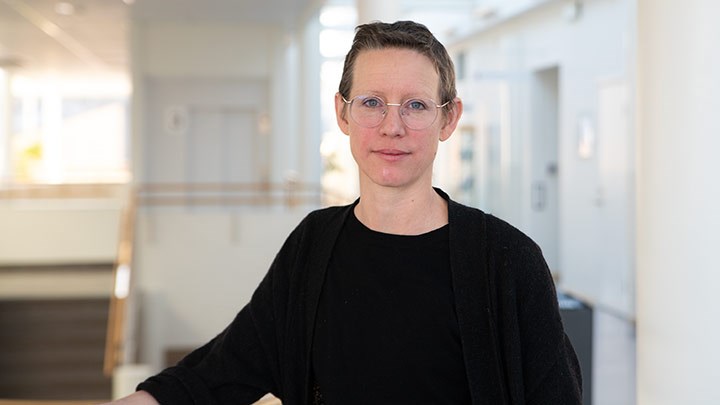Debunking the myths on the grey area between sex and assault

“Men always want sex is a myth affecting both men and women,” says Lena Gunnarsson, gender researcher at Örebro University. Her book on sexual consent and the grey area between sex and assault is now available in English. In the book, Nils shares how he often had sex against his will – just to conform.
“People have a need for validation. At the same time, they don’t want to hurt or jeopardise their relationship. I focus on the grey areas, and there are many reasons why people agree to sex,” says Lena Gunnarsson.
The book Dynamics of Sexual Consent: Sex, Rape and the Grey Area In-Between was written after Sweden’s consent law was introduced in the summer of 2018. The law states that sex must be voluntary, and those involved must give their consent – otherwise, it is illegal. Now, an updated version of the book, originally published in Swedish in 2020, is being released by Routledge in English.
“I’m glad I chose to publish the book in Swedish. Here, it’s been used as course literature and is quite well-read by the general public. Still, I’ve felt that its contribution to the research frontier would only be fully realised if the book is available in English. So, I’m extra pleased I finally took on the translation and Routledge’s decision to publish it,” says Lena Gunnarsson, and continues:
“From an international perspective, the book is unique, thanks to its in-depth interviews and a thorough, critical analyses of consent and sexual grey areas.”
Twenty individuals – ten women and ten men – share their experiences of sex in the book. The interviews, which are both detailed and personal, include bi-, homo-, and heterosexual women and men aged between 22 and 70. Interviewees discuss why they agree to sex, how they persuade others, their boundaries, and why they cross them.
Never even considered saying no
In the book, readers meet Nils, who – for a long time – never even considered that he, as a man, could say no.
“If there’s a notion that men always want sex, then women may cross the line and push for sex. They may not even realise they may be committing an act of sexual assault,” says Lena Gunnarsson.
Stina shares in her interview how she went along with having sex. She wanted her boyfriend at the time to love her. It became customary for her to go along with it – and she speculates whether this may have led her to cross others’ lines of consent herself.
An acute need for validation
“Some people with lower self-esteem have a more acute need for validation, making them more vulnerable. They agree to things they don’t really want to, just to keep another person happy,” says Lena Gunnarsson.
Another participant, Gunnar, describes how his intense desire for sex is linked to his need for validation, which he believes stems from childhood.
“His case is interesting because his low self-esteem makes him prone to adapting to others’ needs. Coincidentally, his desperate need for validation leads him to cross their sexual boundaries,” says Lena Gunnarsson.
A bitter aftertaste
Gunnar also shares how his ex-wife frequently went along with having sex. While it was fantastic at the moment, he now says it left a bitter aftertaste, as it was clear to him that she did it to keep him satisfied:
“And in some way, it probably wasn’t the physical sexual act that I needed – it was the deeper expression of a feeling that I truly craved. And when that wasn’t there, my emptiness didn’t diminish despite being physically satisfied. If anything, the darkness inside only grew,” Gunnar expresses in the book.
“Sex is often tied to other deeper existential needs. People can fall victim to others’ transgressions but can also cross their own lines and end up in situations they’d rather not want to be in. It’s often the need for connection and closeness that drives behaviour among those who go along and those who disregard others’ boundaries,” explains Lena Gunnarsson.
She considers the Swedish consent law a step in the right direction but believes it’s not enough. There are acts or behaviours during sex that are not classified as criminal but can still be harmful.
“We can’t formulate laws about everything. There will always be grey areas, which is why we need to talk more about sex, continue debunking the myths, and challenge gender roles.”
Media and education
Lena Gunnarsson emphasises the importance of collective reflection, noting that media and education have a crucial role.
Lena Gunnarsson concludes: “It’s not only young people who need to talk – society can guide schools in that direction. Comprehensive sex and relationship education is essential,” and continues:
“Beyond contributing to research, I hope my book can be part of a broader collective reflection. To provide a space where people may share experiences, exchange ideas, and reflect together – not just where rules are dictated.”
Text: Linda Harradine
Photo: Linda Harradine
Translation: Jerry Gray
